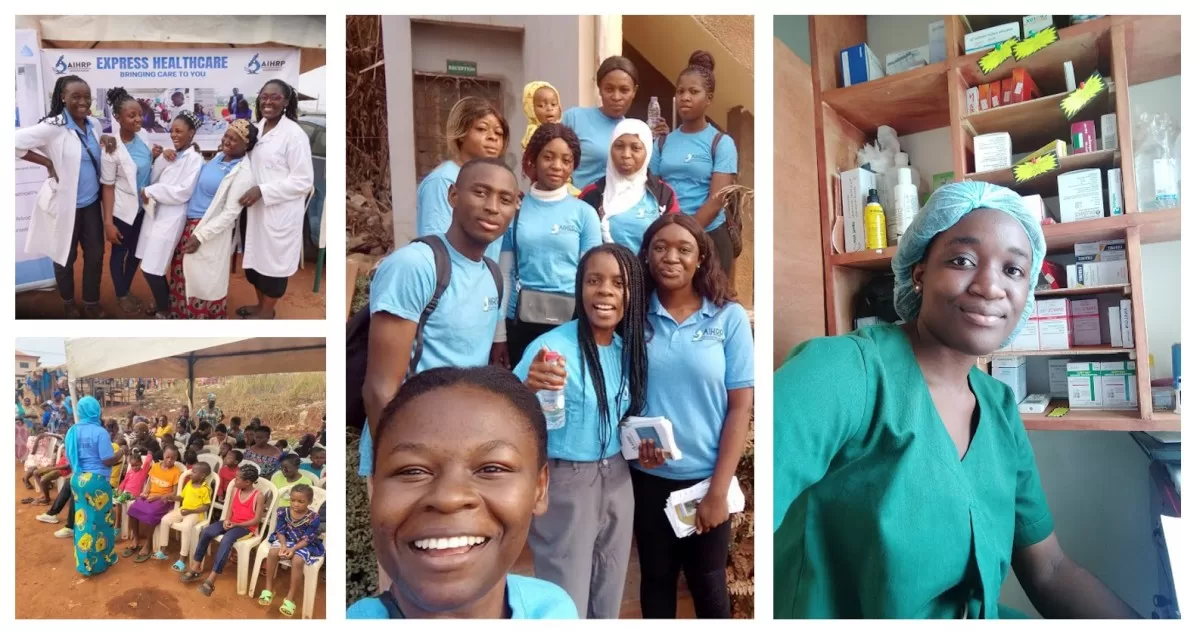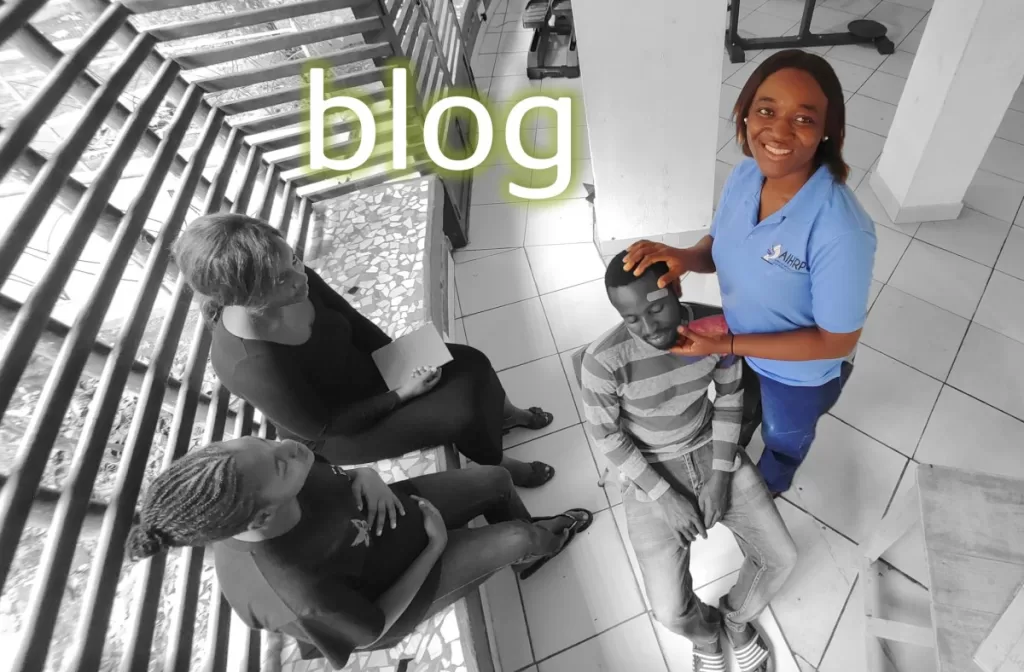kanthari blog – Adelaide Bih – Cameroon
Imagine overhearing your grandparents worrying about where to borrow money so you can go to the hospital while you’re lying sick in bed? That was me as a child. I felt like a burden. My grandparents had spent everything they had, but my health just wouldn’t improve. I was helpless, and I kept wondering why I was always the one who was sick.
My name is Adelaide Bih. I was born to a single mother in the early 1990s, while she was still a university student. When I was just 7 months old, I went to live with my grandparents.
Growing up with them in Wum, the Northwest region of Cameroon, I was sick almost all the time. Sometimes I was hospitalized, but often, because we had no money, I stayed home and took herbal remedies. At age 8, my mother invited me to Bafoussam for the holidays. There, I finally saw a cardiologist. He gave me a lot of medicine, but what I remember most is a fizzy orange juice that came with my pills. I actually looked forward to my medicine because I loved that sweet drink. My health stabilized for a while, and I lived with my mother for three more years before moving back to my grandparents because my mum was appointed to a school far away.
Through all these health struggles, I made myself a promise: I would become a medical doctor. I wanted to understand my condition, care for myself, and help others get access to healthcare. I worked hard and passed all my exams. In August 2009, I sat for the entrance exam to medical school and succeeded. I was thrilled. My dream was getting closer. In 2015, when I was 23 years old, I graduated with a master’s in clinical biology. I was fortunate to get a job working at the Tuberculosis Reference Laboratory of Bamenda Regional Hospital in May 2016.
At the hospital, I met many people who were alone and couldn’t pay their bills. Some didn’t get their medication because they lacked financial means. Having been there myself, I did what I could to help. But then, seven months later, on December 8, 2016, the Anglophone Crisis began. What had started as a peaceful teachers’ and lawyers’ protest turned into a deadly conflict between the government and separatists. By late 2017, things were violent, homes burned, people killed, and everything changed.

The crisis became personal when I lost a close friend in a crossfire. The grief was intense. I couldn’t stop crying or sleeping, and it was hard to accept he was gone. Even now, the memory hurts. For my safety, I fled to Yaoundé, a city I barely knew, facing an uncertain future.
In Yaoundé, I stayed with a friend and relied entirely on her family. I spent months, then a year, applying for jobs, but nothing came up. I felt frustrated and desperate to be independent. So, I began volunteering at my friend’s sister’s association, the Afrogiveness Movement, which was still being set up. This organization supports internally displaced people and refugees.
One day, during our outreach, I met a young mother of five. She was 27, but her oldest child wasn’t even six. Three children were hers, and the other two belonged to her late sister, who had died from lack of healthcare. The two sisters had run from the Anglophone Crisis after their home was burned down, eventually renting a single room with an outside toilet in Yaoundé. They survived by selling food until the older sister fell ill. With no money, she tried self-medicating and traditional remedies, but nothing worked, and she died.
Hearing her story was a painful reminder of my own struggles, of what happens when sickness and poverty meet. That was my turning point. I couldn’t just stand by. Instead of letting my medical skills go unused, I decided to act. I co-founded a walk-in health center that would offer free or affordable care, health education, and psychosocial counseling to crisis victims and low-income families.
My journey, filled with pain and hope, convinced me that no one should die because they cannot afford help. This is why I do what I do.
Read more kanthari blog posts on: https://www.kanthari.org/coronablog/



